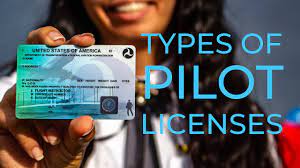
Regardless of their specific role, Pilot Commercial License share a common set of responsibilities. They are entrusted with the safety of their passengers, crew, and cargo, making safety their top priority at all times. This involves conducting pre-flight inspections, adhering to flight plans, monitoring aircraft systems, and making critical decisions in real-time to ensure a safe and smooth journey.
Communication skills are also essential, as pilots must effectively communicate with air traffic controllers, cabin crew, and passengers. Clear and concise communication helps facilitate smooth operations, especially during takeoff, landing, and in the event of emergencies.
Challenges and Rewards
Life as a pilot is not without its challenges. Pilots often contend with irregular schedules, time zone changes, and extended periods away from home. They must also stay vigilant and adaptable in the face of unforeseen circumstances, such as adverse weather, mechanical issues, or air traffic congestion.
However, despite the challenges, many pilots find immense satisfaction in their work. For them, there is a unique sense of freedom and exhilaration that comes with soaring through the skies, witnessing breathtaking vistas, and experiencing the thrill of flight firsthand. Moreover, the camaraderie among fellow aviators and the opportunity to travel to diverse destinations can make the journey incredibly rewarding.
The Future of Aviation
As technology continues to evolve, so too does the field of aviation. Advancements in aircraft design, navigation systems, and automation are shaping the future of air travel. While these innovations offer greater efficiency and safety, they also raise questions about the role of pilots in the years to come.
While automation may streamline certain aspects of flight operations, the human element remains indispensable. Pilots bring experience, intuition, and judgment to the cockpit, allowing them to assess complex situations and make split-second decisions when necessary. As such, the role of pilots is likely to evolve rather than diminish, with a continued emphasis on training, proficiency, and adaptability.
In conclusion, pilots are the guardians of the skies, entrusted with the responsibility of safely navigating aircraft through the air. Their journey begins with rigorous training and dedication, culminating in a career filled with challenges, rewards, and endless opportunities for adventure. As aviation continues to evolve, pilots will remain at the forefront, ensuring that the skies remain safe and accessible for generations to come.